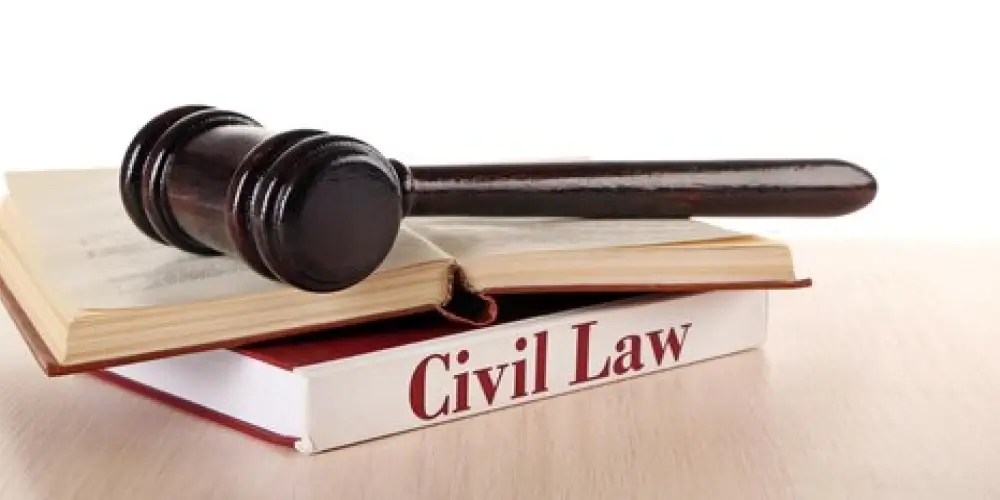

Understanding Civil Laws: Key Regulations Governing Marriage and Divorce
19/11/2024 Natalie Jones 2424
Marriage and divorce are profound milestones in personal and legal contexts, governed extensively by civil laws across jurisdictions worldwide. These laws intricately define the rights, obligations, and procedures involved in entering into, maintaining, and dissolving marital unions. This blog delves into the fundamental aspects of how civil laws regulate marriage and divorce, highlighting key legal principles, processes, and implications.
Marriage: A Legal Covenant
Marriage, universally recognized as a legal covenant between two individuals, is underpinned by civil laws that establish its framework, rights, and responsibilities. Central to these laws are several core principles:
Legal Requirements and Formalities: Civil laws typically mandate specific requirements for the formation of a valid marriage. These often include age restrictions, mental capacity assessments, and sometimes prerequisites such as premarital counseling or waiting periods. Such formalities aim to ensure that marriages are entered into voluntarily and with full understanding of the legal implications.
Rights and Benefits: Marriage confers a multitude of legal rights and benefits upon spouses, ranging from inheritance rights to health care decision-making powers. Civil laws dictate the distribution of marital property, spousal support obligations, and the legal status of children born within the marriage. These provisions serve to protect the interests of both parties and any dependents involved.
Regulation of Marriage Dissolution: Divorce
Despite the solemnity of marriage, circumstances may arise where couples decide to dissolve their union. Civil laws provide a structured framework for divorce, addressing various facets such as grounds for divorce, division of assets, child custody, and spousal support. Key elements include:
Grounds for Divorce: Jurisdictions vary in their approach to grounds for divorce, which may include irreconcilable differences, adultery, abandonment, or cruelty. Understanding and proving these grounds often determine the feasibility and terms of divorce proceedings.
Divorce Procedures: Civil laws prescribe procedural steps for initiating and finalizing divorce. These typically involve filing a petition with the appropriate court, serving notice to the other spouse, and engaging in negotiations or mediation where applicable. Courts may intervene to resolve disputes related to property division, child custody, and support arrangements.
Legal Implications and Settlements: Upon divorce, civil laws dictate the division of marital assets and liabilities, aiming for equitable distribution based on factors such as financial contributions, duration of marriage, and custodial responsibilities. Spousal support, if awarded, is determined based on factors like income disparities and the standard of living established during the marriage.
Challenges and Controversies
The regulation of marriage and divorce by civil laws is not without challenges and controversies. Debates often center on evolving societal norms, such as same-sex marriage recognition, and the balance between individual autonomy and legal intervention in family matters. Courts continually interpret and apply these laws to reflect changing societal values and understandings of familial relationships.
International and Comparative Perspectives
Across different countries, civil laws governing marriage and divorce exhibit significant variations influenced by cultural, religious, and historical contexts. Some jurisdictions maintain fault-based divorce systems, while others have adopted 'no-fault' regimes aimed at reducing acrimony and streamlining the dissolution process. Understanding these differences is crucial for individuals navigating cross-border marriages or contemplating relocation post-divorce.
In conclusion, civil laws play a pivotal role in regulating marriage and divorce, providing a structured legal framework that balances individual rights with societal interests. By delineating rights, obligations, and procedures, these laws seek to promote fairness, stability, and resolution in marital relationships. As societal attitudes continue to evolve, so too will the legal frameworks governing marriage and divorce, adapting to meet the needs and complexities of contemporary family dynamics.
Recent Blogs
Building a Diversified Inves ...
26/01/2025 1800
Integrating AI and Machine L ...
24/01/2025 1356
Health Insurance Regulations ...
22/01/2025 2402
Recognizing Signs of Mental ...
20/01/2025 2439
Understanding Employers' Leg ...
18/01/2025 1379
Trending Blogs
Interest Rates: How They Aff ...
20/06/2024 12684
Client Retention: Building S ...
20/06/2024 10739
Introduction to Common Law: ...
21/06/2024 9803
Common Types of Criminal Charges
02/03/2024 8976
Corporate Finance Law: Raisi ...
04/06/2024 8700











